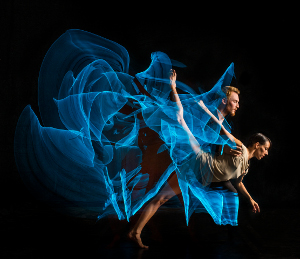Deeply committed and brilliantly executed performances of core repertory by the Greensboro Symphony in War Memorial Auditorium February 6 more than made up for the anxiety of seeing snow still falling and sticking, not the predicted change to rain. Noted violin virtuoso Dmitry Sitkovetsky delivered a magnificent performance of the Beethoven Violin Concerto last season in a concert marked by the give and take more often found in the finest chamber music concerts, so his appearance as a candidate for the GSO Music Directorship has been eagerly anticipated. He is Principal Conductor and Artistic Advisor of the Ulster Orchestra as well as the founding director of the NES Chamber Orchestra. Would the depth of his musicianship as a major violinist carry over into his conducting? By no means have virtuoso players always been able to communicate technically and mold their insights with an orchestra. Based on Thursday’s concert, Sitkovetsky can fully impart his view of his repertory.
A wonderfully spontaneous performance of Samuel Barber’s mercurial Overture to The School for Scandal , Op. 5, opened Sitkovetsky’s concert. The tricky opening fanfare came off perfectly. Detailed string articulation was outstanding and remained so all evening. He drew a full rich sound from the strings with tight ensemble. Woodwinds were as fine: the slightly melancholy oboe’s song was perfectly interpreted by Cara Fish, followed by Kelly Burke’s jocular clarinet, set against pizzicato strings. This was a welcome and auspicious unhackneyed opener that ought to have received more applause. Perhaps hands were still cold?
We have heard our share of generic performances of Rachmaninov’s Second Piano Concerto in C Minor, Op. 18, so pianist Jeffrey Biegel’s fresh view and dazzling technique were most welcome. There was nothing episodic as myriad details were subordinated to his vision. Sitkovetsky’s accompaniment fit like a glove, and he secured a deep, rich, warm sound. The viola section was burnished and outstanding in the outer movements. In the opening of the second movement, Biegel’s piano gently accompanied yearning phrases from flutist Debra Reuter-Privetta and clarinetist Burke. The piano and its lid blocked the view of cellist Beth Vanderborgh during her subtle solo. Biegel generously rewarded the crowd for a genuine standing ovation with Chopin’s fiery “Military” Polonaise, given with thundering octaves and dramatic calisthenics.
A magnificent interpretation of Jean Sibelius’ Symphony No. 2 in D, Op. 43, brought Sitkovetsky’s concert to a brilliant and brassy conclusion. Balances between strings and brass were superb. Each section played at its peak. A full rich string sound was cultivated with very detailed articulation and a wide dynamic range. The woodwinds were up to their usual high standard and I have never heard the GSO horns and brass section play better. The five horn players richly deserved the conductor’s acknowledgment along with the many significant section soloists who were also asked to stand during prolonged applause.
Fear of road conditions caused me to miss the “Meet the Artists” session with soloist and conductor following the concert, always a treat and one of Music Director Stuart Malina’s best innovations. Elon friends reported their enjoyment of Wake Forest University Public Radio’s live broadcast of the concert, which featured a taped interview with Sitkovetsky.
[This program is to be repeated on Saturday, February 8, at 8:00 p.m.]











